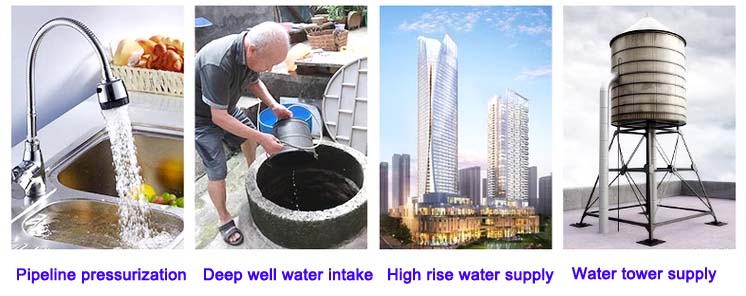English
- Afrikaans
- Albanian
- Amharic
- Arabic
- Armenian
- Azerbaijani
- Basque
- Belarusian
- Bengali
- Bosnian
- Bulgarian
- Catalan
- Cebuano
- Corsican
- Croatian
- Czech
- Danish
- Dutch
- English
- Esperanto
- Estonian
- Finnish
- French
- Frisian
- Galician
- Georgian
- German
- Greek
- Gujarati
- Haitian Creole
- hausa
- hawaiian
- Hebrew
- Hindi
- Miao
- Hungarian
- Icelandic
- igbo
- Indonesian
- irish
- Italian
- Japanese
- Javanese
- Kannada
- kazakh
- Khmer
- Rwandese
- Korean
- Kurdish
- Kyrgyz
- Lao
- Latin
- Latvian
- Lithuanian
- Luxembourgish
- Macedonian
- Malgashi
- Malay
- Malayalam
- Maltese
- Maori
- Marathi
- Mongolian
- Myanmar
- Nepali
- Norwegian
- Norwegian
- Occitan
- Pashto
- Persian
- Polish
- Portuguese
- Punjabi
- Romanian
- Russian
- Samoan
- Scottish Gaelic
- Serbian
- Sesotho
- Shona
- Sindhi
- Sinhala
- Slovak
- Slovenian
- Somali
- Spanish
- Sundanese
- Swahili
- Swedish
- Tagalog
- Tajik
- Tamil
- Tatar
- Telugu
- Thai
- Turkish
- Turkmen
- Ukrainian
- Urdu
- Uighur
- Uzbek
- Vietnamese
- Welsh
- Bantu
- Yiddish
- Yoruba
- Zulu
Telephone: +86 13120555503
Email: frank@cypump.com
Aug . 13, 2024 12:46 Back to list
Exploring the Essential Role of Pumps in the Chemical Industry and Their Efficiency Enhancements
The Role of Pumps in the Chemical Industry
The chemical industry is a cornerstone of modern manufacturing, encompassing the production of a wide array of products, including pharmaceuticals, fertilizers, plastics, and petrochemicals. At the heart of this vast and dynamic sector lies a critical component pumps. These essential devices facilitate the movement of fluids, ensuring efficient and reliable operations across various processes. This article explores the significance of pumps in the chemical industry, their types, and key considerations for their selection and maintenance.
Pumps serve multiple functions within chemical processing operations. They transport raw materials to production units, circulate fluids through reactors, and handle the final product delivery to storage or other units. Given the diverse nature of the fluids involved, including corrosive chemicals, viscous slurries, and volatile liquids, selecting the appropriate pump is vital for operational efficiency and safety.
The Role of Pumps in the Chemical Industry
Another increasingly vital category is magnetic drive pumps, which eliminate the need for traditional mechanical seals, thereby reducing the risk of leaks and enhancing safety. These pumps are particularly valuable in handling hazardous or corrosive substances, as they prevent environmental contamination while ensuring a secure operation.
chemical industry pumps

When selecting a pump for a chemical application, several key factors must be considered. First is the fluid's characteristics, including its viscosity, temperature, and chemical composition, all of which influence the pump's performance. For instance, a viscous fluid may require a pump capable of generating higher pressure to achieve desired flow rates. Additionally, the pump material must be compatible with the fluid to prevent corrosion or damage; materials like stainless steel, PTFE, and various alloys are often used to ensure longevity and reliability.
Another critical consideration is the operational environment. Chemical plants often expose equipment to harsh conditions, including elevated temperatures, high pressures, and corrosive atmospheres. Selecting a pump designed to withstand such conditions is crucial for minimizing downtime and maintenance costs.
Furthermore, energy efficiency has become a focal point in pump selection and operation. As energy costs continue to rise and environmental concerns become paramount, adopting energy-efficient pumping solutions is essential. Variable frequency drives (VFDs) and smart pumping technologies can optimize performance, reduce energy consumption, and minimize costs.
Maintenance is another critical aspect of pump operation within the chemical industry. Regular inspections, routine maintenance, and monitoring system performance can significantly extend the lifespan of pumps and reduce the likelihood of unexpected failures. Implementing predictive maintenance strategies, including vibration analysis and thermal imaging, can further enhance reliability and efficiency.
In conclusion, pumps are indispensable components in the chemical industry, facilitating essential processes from production to delivery. Understanding the various types of pumps, their operational principles, and the importance of careful selection and maintenance can significantly impact a facility's efficiency, safety, and overall productivity. As technology advances, the role of pumps will continue to evolve, driving innovation and enhancing performance in this vital industry.
-
ISG Series Vertical Pipeline Pump - Chi Yuan Pumps Co., LTD.|High Efficiency, Energy Conservation, Low Noise
NewsJul.29,2025
-
ISG Series Vertical Pipeline Pump-Chi Yuan Pumps Co., LTD.|High Efficiency&Energy-Saving
NewsJul.29,2025
-
ISG Series Vertical Pipeline Pump - Chi Yuan Pumps Co., LTD. | High Efficiency, Energy-Saving
NewsJul.29,2025
-
ISG Series Pipeline Pump - Chi Yuan Pumps | High Efficiency, Low Noise
NewsJul.29,2025
-
High-Efficiency Vertical Slurry Pumps for Mining & Industry Solutions
NewsJul.29,2025
-
High-Efficiency Pipeline Pump Solutions for Every Pipeline Pump Station
NewsJul.29,2025










